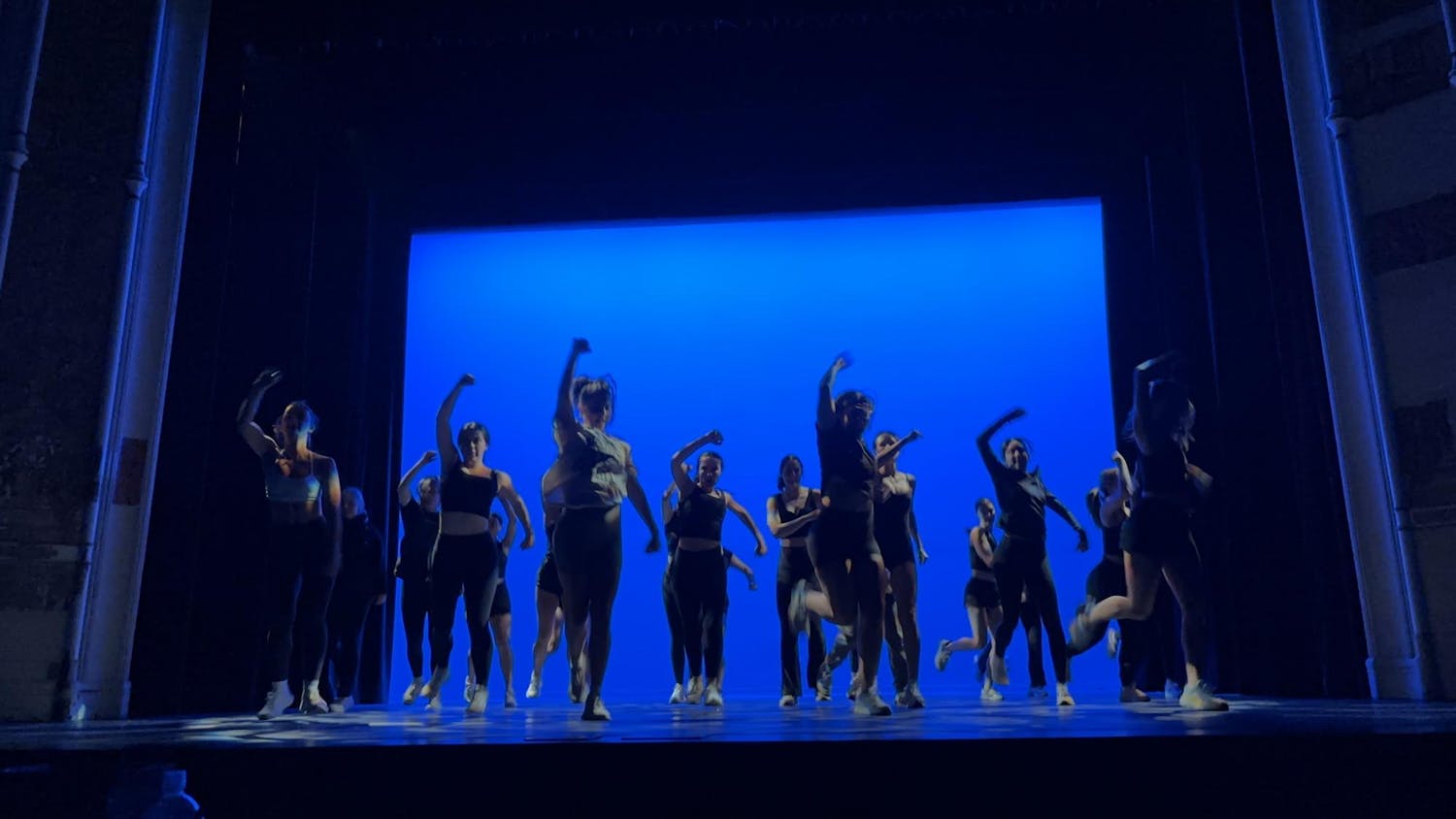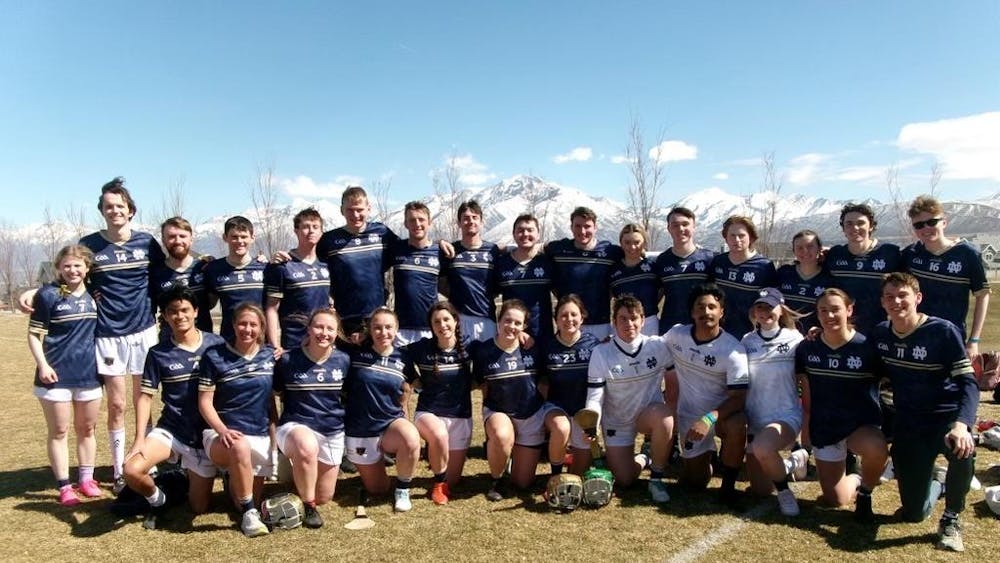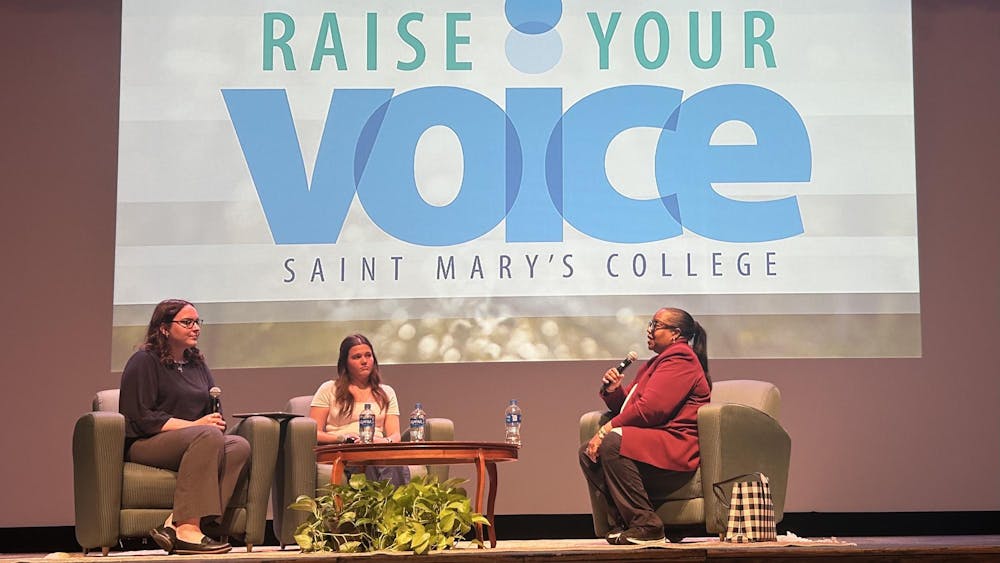The Diversity Council of Notre Dame hosted its third-annual student government election debate in the LaFortune Ballroom on Thursday. Candidates were asked to detail their plans to promote inclusiveness at Notre Dame and demonstrate their awareness of diversity issues on campus.
This year’s candidates for student body president and vice president include junior Elizabeth Boyle and sophomore Patrick McGuire; freshmen Carlston Chang and Kevin O’Leary; juniors Eduardo Luna and Haley Coleman; and juniors Mario Markho and Charlie Ortega Guifarro. (Editor’s note: Ortega Guifarro is a former Sports Writer for The Observer and Patrick McGuire is a former Scene Writer.)
The Chang-O’Leary ticket was not present at the debate.
Junior Kaleem Minor, vice chair of the Diversity Council, moderated the discussion and began by asking the candidates to provide a brief overview of their diversity platform.
Coleman said one of her ticket’s main initiatives is to provide more diverse dining hall meals.
“Concerning our diversity platform in particular, we have quite a few great ideas, but one of our most exciting ones is an initiative alongside Campus Dining,” Coleman said. “ … We would like to include authentic cultural food into the dining plan.”
The team also plans on “working with diversity groups across campus” to ensure their platform represents a variety of voices, she added.
“We’ve sent out over 80 club emails,” Coleman said.
Markho said the Markho-Ortega ticket will work to provide more locations for constructive dialogue about diversity and inclusion on campus.
“The first [plan] … is to reserve space for students who feel marginalized or who feel they have something to say, at all,” he said. “ … To have a space anywhere across campus regularly scheduled to have these types of conversations.”
The pair also hopes to give diversity groups priority funding, Markho added.
“One of the main points on our platform is that we want to increase club funding,” he said. “By focusing those funds on groups that concentrate on culture and inclusion, we would be putting money directly into the hands of students that would be able to affect that change on a personal level.”
Boyle said she and McGuire have plans to form a student civil rights commission.
“We thought it would be really unique and special if we had a student-run commission that looks at discrimination and students’ rights violations and thrusts students right into the middle of that debate,” she said.
McGuire said the team will also work to revise the University’s nondiscrimination clause.
“We see a lot of student groups [and] individuals on campus that aren’t protected, at the moment, by [the nondiscrimination] clause,” he said. “You know, looking into that and restructuring it is a very tangible and powerful way to give protections to more students on this campus.”
Minor then asked the candidates for vice president to share their favorite Walk the Walk Week event and discuss how they plan to further the week’s mission throughout the year.
Ortega Guifarro said he participated in a photography series as part of Walk the Walk Week, and said he will encourage Notre Dame to continue to showcase diverse selections of student artwork.
“Art is under-appreciated, and I think it speaks to the current state of Notre Dame,” he said.
Coleman said her favorite event of Walk the Walk Week was the lecture delivered by Black Lives Matter co-founder Opal Tometi, saying she believes the University could benefit from more visits from prominent speakers.
“I think bringing speakers into this campus is really important,” she said.
McGuire said the MLK luncheon stuck with him because it gave students a unique opportunity to share their voices.
“Not only did [the luncheon] have great representation … but it really was a powerful forum for students such as Alyssa [Ngo] to ask important questions without apologizing and without tailoring to the audience,” he said.













